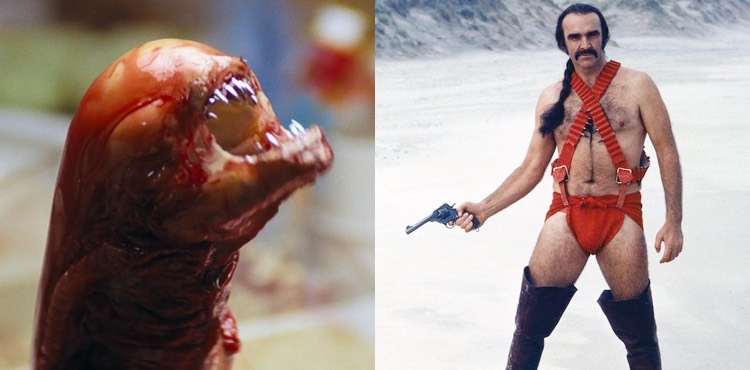
Here at Ars, we're always making lists (just like Liam Neeson). Lists of science fiction movies are a common item for discussion on the Ars staff Slack channel—particularly short lists of the best science fiction movies ever made. But "best" is an impossible word to quantify in any broadly applicable way—one person's "best ever" might be another person's worst, especially in a genre of movies as rich and varied as science fiction.
While the Ars staff has some bitter disagreements on which movies are better than others, it's undeniable that some science fiction movies are mandatory viewing for the modern geek. To that end, rather than try to pull together another tired "top ten sci-fi movies" listicle, we've instead polled the Ars staff to try to come up with a definitive "science fiction bucket list"—that is, a list of sci-fi movies that you should absolutely see at least once before you die. They aren't necessarily the "best" movies by any specific set of criteria, but every film on this list is outstanding in some particular way. Some are groundbreaking in their stories or subject matter, some are controversial, and some contain a character or plot twist that became an archetype, referenced in and reused by countless other films. Some films on the list, like Fritz Lang's Metropolis, are pure cinematic poetry; others, like Pacific Rim, are pure popcorn fun. And, as a bonus, we even included a bonus list of a few absolutely terrible stinkers at the very bottom.
Strap in, dear reader, and pick through the Ars Technica sci-fi bucket list. Each staffer contributed a movie or two to the list, so we've captured a pretty broad range of must-see films. We're sure many folks are going to disagree over our choices—this is the Internet, after all, and arguments on the Internet about science fiction have been going on since the 1970s!—so you're welcome to tell us all of the movies we should have included but didn't down in the comments.
2001: A Space Odyssey (1968)
It's difficult to figure out anything to say about 2001 that hasn't been said before. It's an iconic work by one of the greatest filmmakers, and that alone makes it worth seeing. But there's so much going on that it's also worth watching again if you haven't in a while, in part because the context changes. Pan Am-branded service to a space station at the dawn of this century didn't seem dated or outrageously far-fetched the first time I saw it; it does now. The possibility of some sort of genetic intervention in humanity's past can be thought of as more or less plausible thanks to everything from the Neanderthal genome to the reboot of Battlestar Galactica. Killer AI feels a bit different as we usher in our first autonomous vehicles. It's a movie that doesn't get too stale because many of the themes it tackles remain central to our experience.
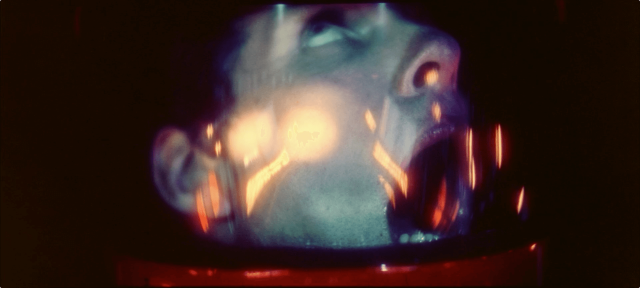
28 Days Later (2003)
A man awakens in the hospital only to discover that most of the world has been overrun by flesh-eating maniacs infected with a zombie virus. With its tense action and all-too-realistic portrayal of how the military might respond to pandemic meltdown, 28 Days Later became an instant horror sci-fi classic. It also helped to restart the zombie genre with its “fast zombie” monsters and focus on urban survivalism.
Alien (1979)
It's the anti-Star Wars: seven space truckers aboard a dirty industrial spaceship investigate an alien distress beacon—only it's not a distress beacon. A masterful movie by a master storyteller, Alien is the original haunted-house-in-space movie. It has also aged beautifully, even though it's steeped in the dark and dirty cinematography and corporate distrust of the late 1970s, and almost 40 years after release it still has the power to make audiences scream. Plus, it's got one of the most iconic horror scenes in all of cinema. Trust us, you'll know it when you see it.
Blade Runner (1982)
A hard-boiled detective gets roped into one last job, rousted from retirement to catch a dangerous gang of outlaws. You’ve heard this one before, right? Not like this. In Blade Runner, Harrison Ford crashes through noodle stands, genetic design shops, and bizarre parties as he hunts for android “replicants” in the rainy, crowded Los Angeles of 2019. Even 34 years after Blade Runner’s cinema debut, it’s still a captivating vision of a dark future that journeys from action to philosophy. Rutger Hauer’s final “tears in rain” scene is as iconic a scene as exists in the sci-fi genre.
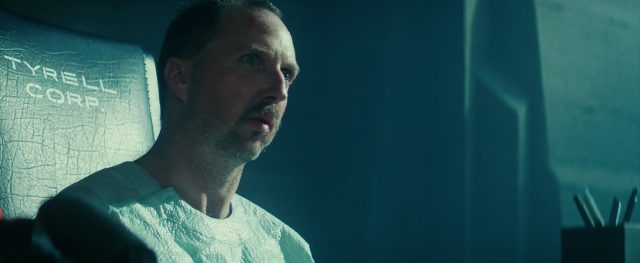
Brazil (1985)
In this dystopian cult film by Monty Python's Terry Gilliam, an unassuming bureaucrat mopes through a future world of terrorism, authoritarian leaders, and seriously creepy plastic surgery. His only outlet is his recurring fantasy that he’s a winged hero escaping his miserable job with the woman of his dreams. But when he gets mixed up with a subversive plumber and a group of mysterious rebels, his quiet life begins to unravel. Brazil is quite simply one of the most moving, memorable satires of techno-authoritarianism in the twentieth century. Gilliam’s crazy retro-futurist aesthetic in this film also gave us one of the first steampunk-looking futures, long before "steampunk" was a thing the kids were talking about.
The Adventures of Buckaroo Banzai Across the 8th Dimension (1984)
These days, most science fiction movies devote their first few scenes to world-building or providing their characters with backgrounds and plausible reasons for getting together. Buckaroo Banzai's approach is epitomized by what's now known as the watermelon scene—and no, we're never told what the watermelon is for. While there is apparently a vast world built around the title character (including material for a never-made sequel), we're not given any of it; instead, we're dumped right into the midst of things as Buckaroo drives a military test vehicle through a mountain and into an alternate dimension. From there on out, we have to piece Banzai-world together ourselves. The result is a chaotic, demented, and absolutely glorious trip through a save-the-world-from-itself plot. If that doesn't hook you, see it for John Lithgow's performance, as he chews enough scenery to have denuded every sound stage in California.
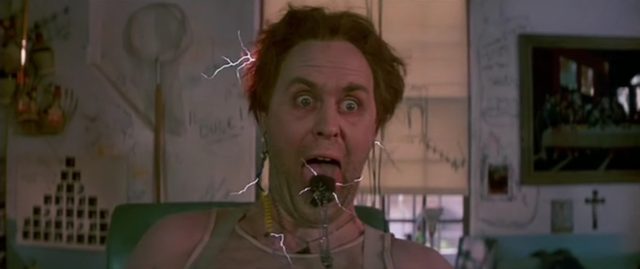
Children of Men (2006)
This one is all about women—who, in a near-future dystopia, can no longer conceive. Until, suddenly, one of them can. Based on a story by PD James, this Alfonso Cuaròn film mashes up contemporary fears about immigration, terrorism, and failed states with the larger worry that humanity itself might be on the brink of extinction. The film isn't just about ideas, though; Children of Men features a (literal) race for salvation so powerful that the late Roger Ebert wrote of one scene, "Not all of the chases in all of the Bournes equal this one, shot in a single take by one camera, for impact."
A Clockwork Orange (1972)
Neo-fascists in the not-too-distant future subject a violent sociopath to brain-altering experiments in the hope of "rehabilitating" him. It doesn't go well. Diamond-cutter editing and Stanley Kubrick's perfectly-composed scenes of atrocity make A Clockwork Orange one of the great cinematic Rorschach tests. Is the movie a gleeful paean to utter, hopeless misanthropy, or an optimistic ode to how balancing the individual and society is a never-ending work in progress? I was cured, alright.
Computer Chess (2013)
A faux-documentary about a chess tournament—sort of. Shot mainly on grainy videotape in order to mimic the look and feel of an early 1980s home movie, Computer Chess starts off mundanely enough and then quickly spirals into relentless insanity and non sequitur. The military gets involved with the tournament. A group of characters possibly gets trapped in a time loop (on color film, no less). And one of the player/programmers possibly makes an artificial intelligence breakthrough—just before the world comes to an end. Maybe. Computer Chess is definitely unconventional, but it's a rewarding movie that both lampoons and idolizes the bearded computer hacker culture of 1980—a time when the future seemed right around the corner.
CSA: The Confederate States of America (2004)
Another faux-documentary, CSA is set in a world where the south won the Civil War. The movie grabs you right at the beginning with a commercial for a fictional insurance company. "For over 100 years," it says, camera panning across a beautiful family, "protecting people and their property." And at "property," the pan stops on a black man, trimming the family's hedges. Though the ending perhaps fails to deliver on the power of the premise, CSA's alternate history take is well-executed and at times riveting. Definitely worth a watch at least once.
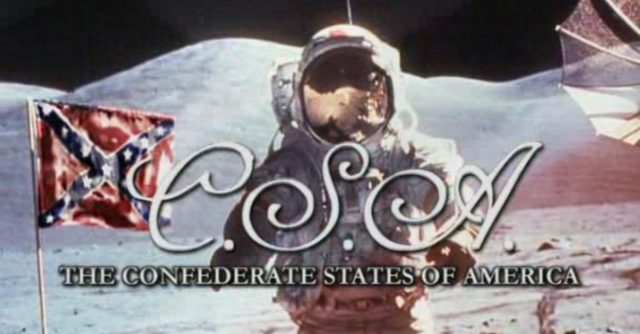
The Day the Earth Stood Still (1951)
The definitive "well-meaning aliens come to Earth and we treat them like crap" movie (although Plan 9 from Outer Space is pretty memorable, too). Friendly humanoid alien Klaatu tries to warn us about nuclear weapons in this Cold War allegory, so naturally we throw tanks at him. I dunno, Klaatu, maybe you should have radioed ahead first before landing your spaceship in the middle of town. The direction and score may be a little stiff for modern audiences, but The Day the Earth Stood Still is one of those ideas that's so copied, so seminal, and so parodied that it feels more like it was discovered than created. Director Robert Wise's humungous career included everything from editing Citizen Kane all the way to directing Star Trek: The Motion Picture, with two Oscars in between.
District 9 (2009)
When an enormous UFO stalls out over Johannesburg, South Africa, the local authorities have to deal with thousands of alien refugees in dire need of food, health care, and shelter. Wikus is a government worker leading an effort to relocate the aliens (whom he disparagingly calls “prawns”) to a distant camp, but the situation quickly spirals out of control. It turns out the government wants to use the aliens’ military tech and is willing to sacrifice humans to do it. An intense indie flick that combined incredible battle effects with smart political subtext, District 9's take on an alien invasion tale is rivetingly told.
Dune (1984)
Saying that David Lynch’s 1984 adaptation of Frank Herbert’s 1965 novel Dune is a seminal piece of science fiction film is a little misleading—we'd suggest that you read the book and watch the movie after. Lynch’s adaptation lacks a lot of the narrative tension that the novel has, and it definitely sags in places, leaving someone unfamiliar with the Dune-verse confused and bored. But if you’ve read the book and know what’s going on, this movie is such a science fiction gem. The sandworms are awesome for 1984, Patrick Stewart and Sting are recognizable faces for a younger generation just now coming to the movie, and Lynch's visuals transcend the clunky story—even if it doesn't entirely make sense, it definitely looks beautiful. Plus, all the music is by Toto, so the film even sounds like a cool adventure from your memory.
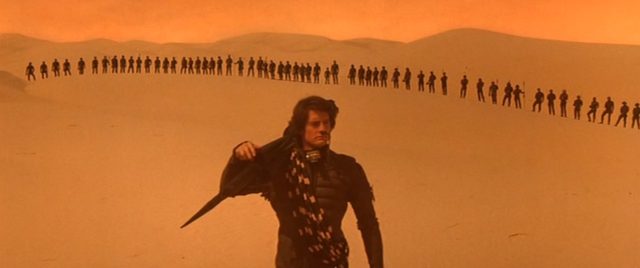
Enemy Mine (1985)
Based on a novella by Barry B Longyear, Enemy Mine tells the story of two bitter enemies marooned on a hostile world. The plot is a little schmaltzy, as is the ending, but the all-in performance by Louis Gossett Jr as the alien Jeriba—especially in scenes like the one where he and Dennis Quaid's Davitch realize that concepts like selflessness and compassion are universal and truth is truth—elevates the movie from forgettable to absolutely exceptional.
Eternal Sunshine of the Spotless Mind (2004)
A new form of technology promises to erase unwanted memories from your mind, and so our protagonist (played with frenetic melancholy by Jim Carey) decides to delete all recollections of his terrible breakup. Too late, he discovers that means he has to lose every good memory of his ex-girlfriend, too. In this surreal romp through tech-altered minds of the future, weirdo sci-fi writer Charlie Kaufman reveals that bad memories are not always what they seem.
reader comments
744